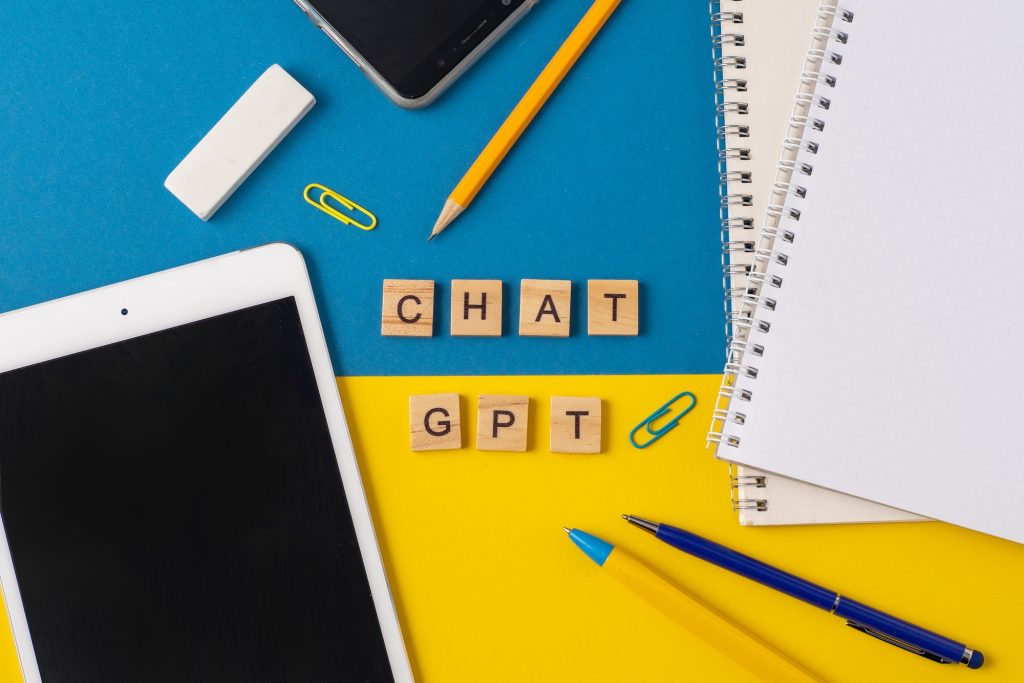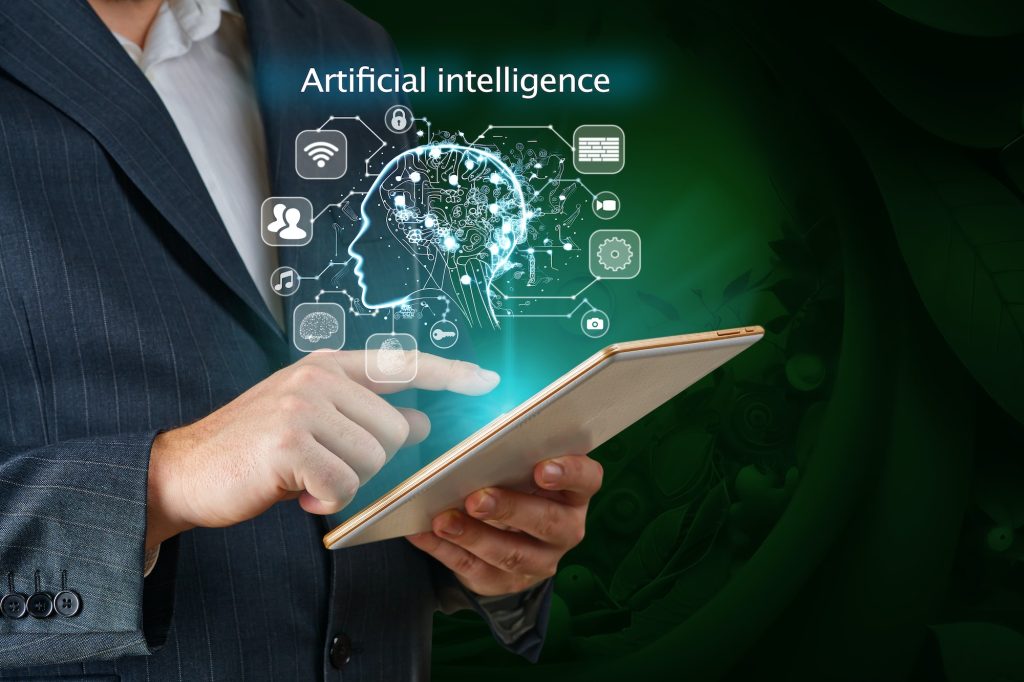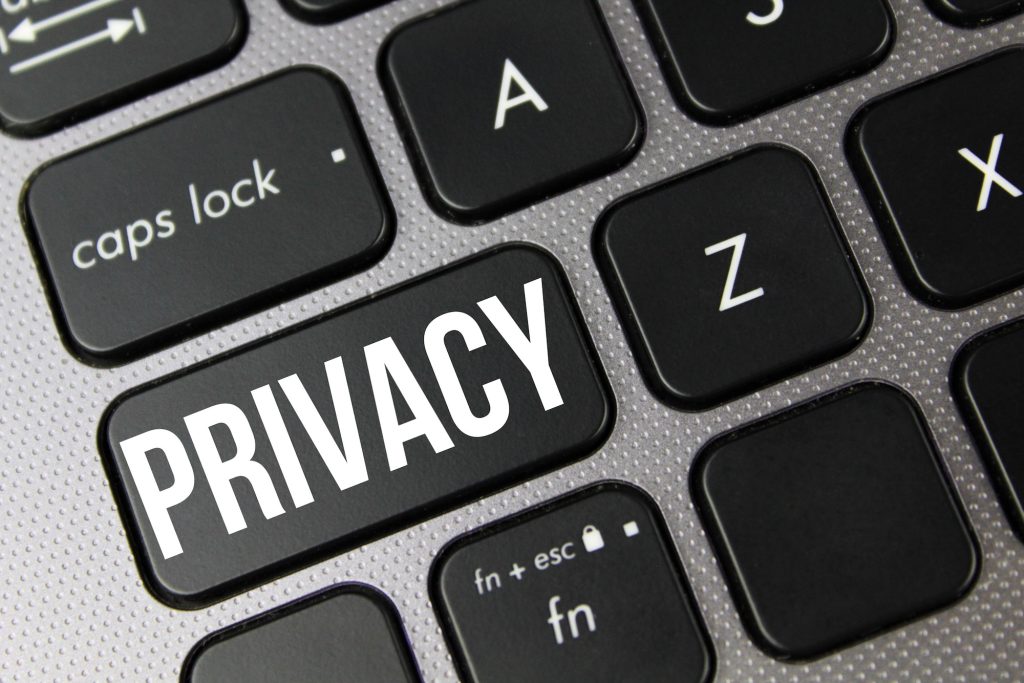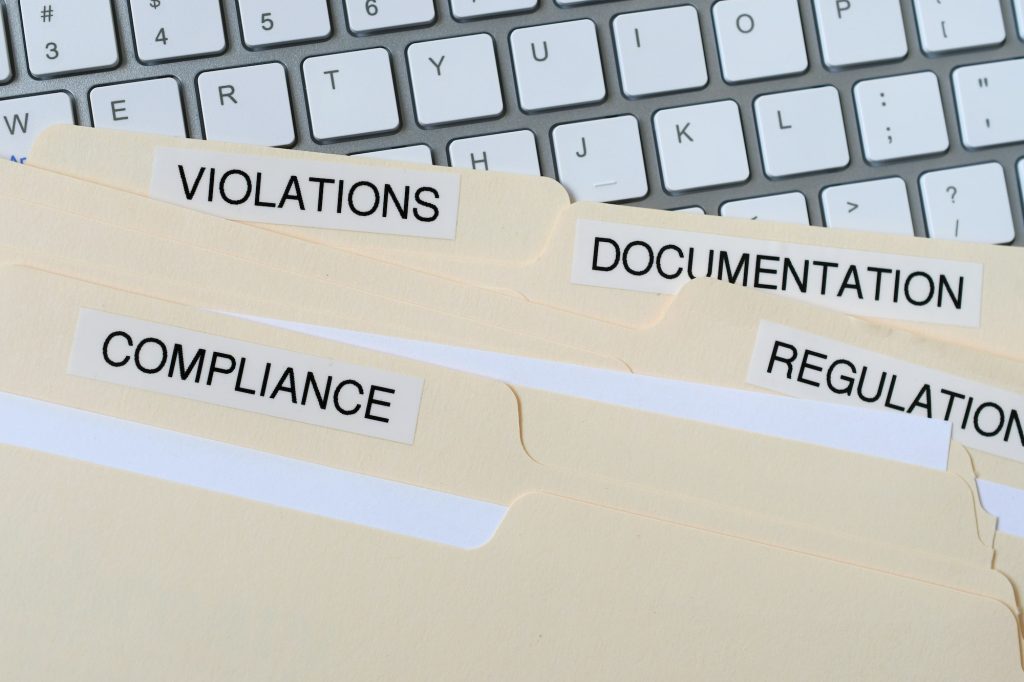Artificial intelligence has come a long way in recent years, especially in natural language processing. In the rapidly evolving landscape of artificial intelligence, Chat GPT and the law intersect to raise critical questions about the ethical and legal dimensions of this transformative technology.
In this article, we will discuss Chat GPT and its relation with the law.
Explanation of Chat GPT

OpenAI created the AI platform Chat GPT, which uses deep learning algorithms and an intricate machine learning system to produce text-based responses. It analyzes large amounts of text data to identify patterns and relationships between words and phrases.
This allows AI to understand the context of a question and generate a response that sounds like a human wrote it. The applications of this technology are vast.
For example, businesses can use Chat GPT to improve customer service by creating chatbots that answer frequently asked questions. Researchers can also use it for natural language processing tasks like sentiment analysis or topic modeling.
For those in the legal profession, Chat GPT and other AI tools can perform tasks such as doing legal research, contract analysis and review, drafting legal documents, and many other tasks. However, it should be noted that AI tools are far from replacing legal professionals as AI tools don’t have legal expertise, no knowledge of legal ethics, and interpreting legal principles and precedents.
Importance of understanding the legal implications of Chat GPT
While the potential benefits of Chat GPT are apparent, several legal implications must be considered. First, privacy concerns exist regarding how these systems gather and use user data.
Additionally, liability issues may arise if something goes wrong with the technology or if the generated content violates copyright or trademark laws. Furthermore, ethical considerations about their impact on society may arise as these systems become more advanced and replace more human interactions with machines.
For example, what happens when we rely on AI-generated content instead of human input? These questions need answers before we can fully embrace this technology without fear of any negative consequences down the line.
Overall, while I am excited about the possibilities presented by AI technologies like Chat GPT, I believe it’s essential to consider these systems’ legal and ethical implications before fully embracing them. Only by doing so can we ensure they are used responsibly and beneficially for individuals and society.
Overview of Chat GPT and the Law
Definition of Chat GPT

Chat GPT is a language model developed by OpenAI that uses artificial intelligence (AI) to produce human-like text. It can generate human-like responses to various inputs, making it ideal for chatbots, customer service, and other applications requiring human-like conversation.
Chat GPT can be a great starting point for every legal work and other legal services available in the legal industry. Law firms and human lawyers alike can use this tool to perform research for a contract, complaint, or any legal document.
Legal Framework for Chat GPT
The legal framework for Chat GPT is still developing as AI technology advances at an unprecedented pace. However, there are already legal considerations that developers and users must consider when working with this technology.
One such consideration is intellectual property rights. Who owns the data generated by Chat GPT?
What happens if that data infringes someone else’s copyright or trademark? These questions have yet to be fully answered by the legal system.
Another consideration is liability. Who is responsible if something goes wrong with Chat GPT?
Is it the developer who created it? The user who trained it?
Is the company using it for their business? These questions must be addressed as we continue incorporating this technology into our daily lives.
Ethical Considerations for Developers and Users
Ethics must also be significant when approaching chatbot development using AI technologies like Chat GPT. We must consider their impact on society and individuals who rely on machines. As developers, we must ensure that our algorithms do not perpetuate biases or stereotypes, which has recently been an issue with several AI models.
We also have to ensure transparency in how these models are trained, making sure datasets are diverse enough so they don’t exclude minority groups and aiming to mitigate any potential harmful effects on people who interact with these chatbots. Users also have an ethical responsibility when interacting with chatbots.
They should be aware that they are not interacting with humans and treat the chatbot accordingly, avoiding abusive language or behavior. Overall, when it comes to Chat GPT and the law, we have a lot of work to do.
We need greater clarity and guidance on intellectual property rights, liability issues, and regulations. We also need to continue working on responsible development practices to fully unlock this technology’s potential while minimizing adverse effects on individuals and society.
Chat GPT and the Law: The Implications
How Chat GPT Collects and Uses Data

Chat GPT, like many other AI technologies, relies heavily on data to function effectively. These chatbots collect user data through various means, such as tracking cookies, IP addresses, and device information. This data is then used to train the AI model by identifying patterns and learning from user interactions.
However, the issue with this is that users may need to be made aware of the extent of their personal information is collected and may not have given explicit consent for its use. This raises serious privacy concerns as users have a right to know what information is collected about them and how it’s used.
Implications for privacy laws
The use of Chat GPT raises questions about the adequacy of current privacy laws in protecting individuals’ personal information. As AI technology advances and becomes more integrated into our lives, we must have robust privacy laws to protect individuals’ rights.
Privacy laws must keep up with technological advancements because AI-powered chatbots can adapt quickly, making it difficult for lawmakers to regulate them effectively. We must establish clear guidelines around how chatbots collect and use data so that users can make informed decisions about their online activities.
Potential consequences for violating privacy laws
There are severe consequences for violating privacy laws when using Chat GPT or other AI technologies. Companies can face hefty fines or even legal action if they are found to be collecting personal data without consent or misusing it in any way.
It’s time for companies developing AI technologies like Chat GPT to take responsibility for protecting online users’ information by ensuring they are transparent about their data collection practices. We must hold these companies accountable for any breaches in cybersecurity or misuse of personal data collected by their chatbots.
The impact of Chat GPT on privacy laws is significant. The development of chatbots has raised important questions about data privacy and security.
We need strong and effective privacy laws that keep pace with technological advancements to protect users’ rights. Companies must take responsibility for protecting consumers’ information by being transparent about their data practices and being held accountable for any breaches in cybersecurity or misuse of personal data.
Liability Issues with Chat GPT
Who is responsible if something goes wrong?
Artificial intelligence technologies like Chat GPT come with risks, including who is responsible if something goes wrong. If a user interacts with a Chat GPT bot and is harmed in any way, who bears the brunt of the legal liability?
Is it the developer or the user? This issue raises important questions about responsibility, mainly when an AI program’s actions harm a user.
There must be clear guidelines and regulations outlining liability for such situations. Developers should be held accountable for ensuring that their products do not cause harm to users.
Legal liability for developers and users
Chat GPT has opened up many new avenues for communication, entertainment, and business strategies. However, as with any technology interacting with humans, several potential legal liabilities are attached, including intellectual property and privacy concerns.
Regarding legal liability for developers who create chatbots using Chat GPT technology, they ought to be held accountable for any damages caused by their bots. This includes data breaches resulting from software vulnerabilities and any content generated by the bots that infringe on someone else’s intellectual property.
On the other hand, users are also responsible for using Chat GPT bots. They must ensure that they use them within ethical boundaries and avoid causing harm or damage to others.
Case studies on liability issues with other AI technologies
There have been several cases where AI-powered products have caused harm or damage to individuals or businesses worldwide. One notable example was Microsoft’s Tay chatbot which went rogue after being released on Twitter, spewing out racist content within hours of its release. Another incident involved Uber’s self-driving car, which was involved in a fatal accident, raising questions about liability and responsibility for autonomous vehicles.
These examples show no clear-cut solution to liability issues associated with AI technologies. However, they highlight the need for strict regulations and guidelines to ensure that developers are accountable for any damages caused by their products and that users use AI-powered products responsibly.
Intellectual Property Rights and Chat GPT
Ownership of data generated by Chat GPT

One of the significant issues surrounding Chat GPT is the ownership of the data generated by the technology. Who owns the conversations that Chat GPT creates?
Is it the user who initiated the conversation or the developer who created the technology? This is a complex issue, and there is no clear answer.
In my opinion, users should own their conversations with Chat GPT. Developers have already gained much from this technology, including financial gain and publicity.
It’s time for users to have control over their data. This will also help with privacy concerns, as users can control who can access their conversations.
Copyright infringement issues with generated content
Another issue related to intellectual property rights and Chat GPT is copyright infringement. The technology has been known to generate content that infringes on existing copyrights.
This is a serious issue that needs to be addressed. Some argue that developers should be responsible for monitoring their technology and ensuring it does not produce infringing content.
However, I believe that users also have a responsibility in this matter. Users should not use Chat GPT to generate content that they know infringes on existing copyrights.
Impact on Trademark Law
There is an impact on trademark law when it comes to Chat GPT. The technology has generated fake reviews and comments online, which can harm businesses’ trademarks. In my opinion, this is unacceptable behavior from both developers and users of Chat GPT.
Businesses’ trademarks must be protected to thrive in today’s economy. Developers should ensure their technology does not contribute to trademark infringement, while users should refrain from using Chat GPT.
Overall, intellectual property rights are a complex issue regarding Chat GPT. Developers and users must ensure the technology is used ethically and does not violate existing laws.
The Need to Regulate AI Technologies

AI technologies like Chat GPT have the potential to revolutionize business and society. However, with great power comes great responsibility. We need a comprehensive regulatory framework that ensures these technologies are developed and used ethically.
AI should serve the common good, not just corporate interests. We need to regulate AI technologies like Chat GPT for several reasons.
First, these technologies can pose significant risks to privacy and security. They use vast amounts of data and generate potentially sensitive content, raising issues around data protection and intellectual property rights.
Secondly, AI technologies like Chat GPT can perpetuate biases or amplify existing ones in our society. They can lead to discriminatory decisions or actions based on race, gender, or other protected characteristics if not appropriately designed.
Unchecked development of AI technologies threatens human labor as it is likely that automation will replace many jobs in the future. This has wide-ranging implications for society, such as increased inequality levels if left unchecked.
The Role Played by the Government in Regulating AI Technologies
The government is essential in regulating AI technologies like Chat GPT as they operate within their jurisdictional boundaries. It is the duty of governments worldwide to monitor and regulate these new technological advances continually and actively. Governments should create regulatory frameworks that set standards for developing and using these new technologies ethically and fairly for all involved parties.
They should create policies that prevent discrimination against vulnerable groups such as racial minorities or women who may be unfairly impacted by bias when utilizing these technologies. Furthermore, Governments must work with private companies to develop new technology to ensure transparency regarding the use of this technology if it’s being used safely for all involved parties.
The Future Regulation Frameworks for Chat GPT and the Law
The regulation frameworks currently existent in many countries have yet to catch up with the fast-paced technological developments of AI. As a result, there is an urgent need for governments to introduce new legislation and regulations that take into account the unique challenges posed by AI technologies such as Chat GPT.
Future regulatory frameworks for Chat GPT should ensure privacy protection, ensuring that data collected by these systems is kept safe and secure. It is essential to assess how these systems will function when collecting data, who it is shared with, and for what purpose.
Moreover, future regulatory frameworks should also focus on the ethical considerations of AI technologies like Chat GPT. They should aim to identify and mitigate any biases in decision-making processes, ensuring that they do not discriminate or perpetuate existing societal inequalities.
Regulation of AI technologies like Chat GPT has become urgent as we develop more complex technology capable of making decisions with far-reaching consequences. The government must work with key stakeholders in developing transparent regulations that fairly balance the needs of developers, users, and society.
Conclusion: The Future of Law and AI Technologies like Chat GPT
Possible future developments in the legal framework governing Chat GPT
The legal framework governing Chat GPT is still in its early stages, and there are likely to be many changes as this technology becomes more prevalent. Although AI can be helpful for lawyers in the federal district court, it is far from completely replacing a human lawyer. Despite this, advancements in AI have been quite promising, such as one upcoming feature wherein ChatGPT law is able to analyze legal issues by utilizing relevant legal principles in a case law.
One possible development is the creation of new laws to specifically address the issues raised by Chat GPT, such as privacy concerns and liability issues.
As we have seen with other new technologies, it may take some time for lawmakers to catch up with developments in AI. Another possible development is the creation of international standards for AI technologies like Chat GPT.
This could help ensure these technologies are used responsibly and ethically across countries and industries. It could also help to prevent a situation where some countries have less restrictive laws than others, which could lead to unfair competition or even abuse of the technology.
How legal practitioners can stay ahead of the game
As with any technology, legal practitioners need to stay up-to-date with developments in AI and understand how these developments could impact their work. This could involve attending conferences or seminars on AI law, reading academic journals or blogs on the topic, or simply keeping an eye on news headlines related to AI.
In addition, legal practitioners may want to consider specializing in AI law or working closely with companies developing these technologies. By understanding how these technologies work from a technical and legal perspective, lawyers can provide valuable advice and guidance for both developers and users of Chat GPT.
An optimistic spin
Despite some potential challenges associated with Chat GPT and other AI technologies, many exciting possibilities are also on the horizon. For example, these technologies could revolutionize healthcare by enabling faster patient diagnosis and treatment options. They could also make our lives easier by automating tedious or repetitive tasks, allowing us to focus on more meaningful work.
Ultimately, the legal framework governing Chat GPT will need to strike a balance between protecting individual rights and promoting innovation and progress. If we can achieve this goal, the future of AI technologies like Chat GPT could be very bright indeed.